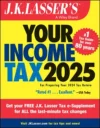Fast Track Settlement Procedures for the Self-Employed
The IRS has long had a fast track settlement program for large and mid-sized businesses to resolve outstanding legal and factual issues in contention through mediation. The IRS had started a similar program for small businesses and self-employed individuals and, over the years, extended and expanded it. Now this program—Fast Track Settlement (FTS)—is permanent.
This mediation option is commenced when an eligible taxpayer files Form 14017, Application for Fast Track Settlement, and submits the Application Package. Once accepted, the process is handed by an Appeals Officer trained in mediation, who serves as a neutral party. The IRS says that a settlement can be reached within 60 days of acceptance of the application. The resolution is not binding on the parties. However, once a taxpayer opts for FTS, post-appeals mediation is not available for any issues that had been considered. Of course, if a taxpayer continues to dispute the IRS position, litigation is always an option.
Not all cases can be addressed in FTS. For example, it cannot be used for a correspondence audit. The list of cases for which FTS can and cannot be used are listed in Rev. Proc. 2017-25 (2017-14 IRB 1039).
Carryback
A tax technique for receiving a refund of back taxes by applying a deduction or credit from a current tax year to a prior tax year. For example, a business net operating loss may be carried back for two years.



